Samira Wiley on Handmaid’s Tale and the shock of her OITNB death
Killed off in "Orange Is the New Black," Samira Wiley wondered if she'd ever work again. The dystopia of "The Handmaid's Tale" proved otherwise -- and brought an Emmy nomination for her efforts.

The tale of Samira Wiley begins when she nine. Or ten. Or twelve.
Reverend Dennis Wiley can’t exactly remember how old his daughter was when “she heard about an arts program called All About Creativity at Howard University, and enrolled in it,” but it set the buoyant young girl with a warming, bright smile on a path that would one day lead to national recognition and an Emmy nomination.
“It was very clear that acting is what Samira wanted to do,” says the elder Wiley, who along with his wife, Christine, pastored at D.C.’s Covenant Baptist Church for 32 years, and was an emphatic, vocal leader in the local charge for marriage equality. “Everybody doesn’t get a chance to do what they really have a passion for as a job. Fortunately, she’s been able to fulfill that dream, and get paid for it at the same time.”
Samira Wiley first came into the national spotlight in 2013 with Netflix’s groundbreaking Orange Is The New Black. She played Poussey Washington, a spry, gentle incarcerated soul with a profound intellect and a concerning dependency on homemade alcohol. When, in season 4, Poussey was accidentally killed by a prison guard, the loss set off a massive prison riot that informed the whole of season five. For her part, the 31-year-old Wiley — who is married to Lauren Morelli, one of Orange‘s former lead writers — had no clue she was being fired from the show. It was heartbreaking reality to be cut loose from a series that had come to mean so much to her personally.
“My wife and I actually were like, ‘Why would they eliminate one of the most beloved characters on the show?'” says her father. “But then, that’s show business. I guess that’s real life, too — some of the worst things sometimes happen to some of the best people.”
Released from Orange, Wiley landed an even better job, one just as high profile and currently the buzz of TV-land — Hulu’s brilliant, soul-shattering The Handmaid’s Tale. Based on the dystopian 1985 novel by Margaret Atwood, it’s set in a not-too-distant future, where humankind has lost much of its ability to reproduce. The show chronicles the downfall of America and the rise of Gilead, a totalitarian nation fueled by religious fanaticism and a brutally sadistic patriarchy that suppresses women in almost every respect imaginable. Dissenters, both male and female, are routinely put to death, often in public, and gays and lesbians are branded as “gender traitors” and are either executed or shipped off to The Colonies, where they till toxic earth until they drop dead from radiation poisoning.
The show’s first season followed the basic track of Atwood’s novel, recounted primarily from the point of view of Offred (Elisabeth Moss, awarded an Emmy for her searing portrayal), a Handmaid in the home of Commander and Serena Joy Waterford. Like all Handmaids, Offred is still able to bear children, and therefore is forced into surrogate servitude, by means of ritualistic rape, to produce an offspring for the couple.
Wiley’s character, Moira, was Offred’s best friend before Gilead. But Moira’s trajectory takes a different path when she escapes to Canada, where she’s granted asylum. It’s clear from the first few episodes of season two that Moira is grappling with survivor’s guilt, unable to do anything to save her best friend from the horrors of Gilead.

“Samira is a treasure,” says series creator Bruce Miller. “She’s a spectacularly talented actress. Such a smart woman, such an articulate, thoughtful human being, and also just a pleasure to work with. I cannot rave about her enough.”
“Samira’s incredible to work with,” agrees Alexis Bledel, who plays Ofglen, a “gender traitor” whose furious act of rebellion in season one lands her in the unforgiving Colonies. “As a co-worker, I love her energy. And I admire her as an advocate for LGBTQ rights. I am totally inspired by her.”
“Like Moira, she’s fierce,” adds the show’s executive producer Warren Littlefield. “She is strong and yet laced through all the strength is a tenderness and a wonderful, gentle side…. We’re thrilled that she’s such an important part of the show.”
Perhaps Wiley’s father says it best: “Samira seems to be always happy for the other person — it’s not all about her. She rejoices when other people rejoice, even when things haven’t gone so well for her. I’ve never seen her bitter with regard to playing roles that she would have liked to play but maybe didn’t get. She has a very healthy outlook and perspective on her career. And I think it is serving her well.”
METRO WEEKLY: What’s it like to be part of The Handmaid’s Tale?
SAMIRA WILEY: What’s specifically nice for me is to be a part of a show that is truly about women. I’m surrounded by so many talented women — whether front-of-the-camera people like Elisabeth Moss, or those behind the camera. The very first season, every single director we had was a woman, save one. I’m inspired when I go to work — I’m able to see people doing things that I would like to do one day.
Margaret Atwood is [often] on set, and even just seeing her helps me realize that “Yes, I’m an actor and it’s my life’s work to bring other people’s stories to life, but this show is really, really, really, really helping me realize the voice that I have.” And it’s so powerful to realize that you have a voice. There’s so much chatter and conversation going on around the themes in this show, and I’m able to be a part of this global conversation in a way that I wouldn’t be if I wasn’t in it.

MW: The show is not kind to women, to say the least. Women are treated brutally in every respect, even the wives of the commanders. Obviously, there’s going to be an endgame at some point — a revolt, an uprising — we’ve seen hints of it. But we’ve also now seen the horrible measures Gilead’s government takes when people fight back. In season two — and I’ve seen six episodes — the pervading atmosphere remains horrific and bleak.
WILEY: I think the show is about women’s resilience and resistance — the “keep going” power of women. I think it is a story of perseverance. I have faith that it will ultimately be a story of triumph. There are so many things that these women in this fictional world of Gilead have to endure. But I am so bolstered by Offred’s resolve. It’s horrible, horrible, horrible, but you see how much these women have in them because they’re being pushed down over and over and over again.
We see Moira in the first season, and her spirit is pretty much completely broken. She has retreated to Jezebel’s. She has been reduced to taking drugs every night and falling asleep without pain to escape it all. It’s for survival, really. All of this, I think, is about survival. Every single decision that the characters make is about survival. Moira even creates another persona for herself — Ruby — to be able to survive through all of this. It’s not easy.
MW: It does seem to focus more on survival this season. The Colonies alone show what people are willing to endure to survive with their humanity intact, when those who imprison them treat them less than human — in fact, less than animals. The horses are given gas masks while the women out in the radioactive fields aren’t. It’s brutal. I can’t imagine, but what is the atmosphere like on the set?
WILEY: You’ve got Gilead, you’ve got Canada, you’ve got flashbacks, you’ve got the Colonies. There are many different parts of the world that I never come in contact with, and there are many parts of the world that other actors I’m involved with never come in contact with. This season I’m mostly with Luke in Canada, so it’s a different show experience for us than when they’re in shooting in the Colonies.
The main thing I try to hold onto on our set is some cheer. When the camera turns off, we always talk about the cookie tray. The cookie tray is something that comes around at a certain time every day, and we’re always looking for it, because after being fully immersed in Handmaid’s world, it’s only healthy to be able to fully step out of it.
MW: How does the Handmaid‘s set differ from the Orange set?
WILEY: Everyone is so respectful on the Handmaid’s set. For Orange, it was just a mess all the time when the cameras were off. We were yelling and screaming and throwing things. I think about my behavior sometimes on that set and I’m like, “Jeez, would I have a job now?” It just was like that. The energy was so frenetic — and it was infectious and exciting and everything was so new. Handmaid’s seems more like a grown-up job. There’s an understanding of the issues that we are bringing to light, an understanding that the story we’re telling is one of real importance and relevance, and that we need to get it right. Margaret Atwood has created a world that is so alive. I think everyone just wants to really get it right.
MW: It’s terrifying because this could happen. This could be our world someday.
WILEY: I hate it when people say that.

MW: That’s what makes it so harrowing, I think. In one of the flashbacks, when Alexis Bledel and her wife are stopped by immigration trying to leave the country, what occurs is alarming and distressing. It shows how quickly circumstances we take for granted can change. It’s a warning shot about how fragile our rights truly are.
WILEY: It’s scary when you think about it in those terms. There are a lot of things that have been happening in this world today, where you read the headline and it’s like, “How could that have happened?” Specifically, for me, I’ve been so personally affected by the transgender [ban] in the military policies. It just feels like something that couldn’t happen, and then it just did. That’s the same thing that’s happening in Handmaid’s. Moira and June show up at a coffee shop one day after a run to buy a cappuccino, and all of a sudden they’re denied because they’re women. It’s like, “What? How could this happen? It’s 2018!”
So it is scary, but when you actually think about it, the parallels between the actual feelings that I have to muster to play Moira and bring her actual emotional reactions to light are not so different from the feelings that Samira has on a random April morning reading a headline.
MW: You’ve been a key part of two shows that deal with topical, important issues. Orange is arguably even more socially vital because of the way it deals with the prison system. Though it’s a little lighter, thankfully.
WILEY: [Laughs.] I know. It’s crazy to think a prison show is light!

MW: Your character on that show, Poussey, was universally beloved, by both the characters on the show and the fans. It was devastating when she was killed.
WILEY: It was a complete shock to me. Complete shock. I don’t know how it would have gone down if my wife wasn’t writing on the show at the time. She told me.
MW: What did she say?
WILEY: She started off with like, “Hey, like, Poussey’s going to die this season,” and then explained why. I went through so many emotions. I was angry. I was so upset. I couldn’t believe it. It felt like this was my family, and they were all of a sudden just saying they didn’t want me anymore. I couldn’t understand what I did wrong. I was blindsided.
Then after really listening to what the story was that they were trying to tell, I felt a little better about it, and felt honored that they wanted to tell this story with this character.
MW: The narrative probably wouldn’t have worked as well with any other character.
WILEY: That’s what I ended up talking to Jenji [Kohan, Orange‘s creator] about. She said those exact words to me. She said they had to find someone who would impact people in a way that it did. I think they succeeded.
MW: Did you at least have Handmaid’s on the horizon?
WILEY: No, I didn’t have a job for months after. There was no Handmaid’s on my radar. I didn’t know what I was going to do. I was like, “Well, should I go look for a bartender job?” It’s scary to have this job security — or a false sense of job security that I thought that I had for so long — and then to be cast out in the audition pool again.
MW: You’re on the verge of tears just talking about it.
WILEY: There’s no way I can overstate how big Orange was for me. It gave me everything. I mean, I met my wife on the show! But specifically bringing the character of Poussey to life. I walk down the street and that’s all people call me “Poussey!” People yell from across the street, “Poussey, Poussey!” It’s something that is in there now. It’s not going anywhere. It’s in there.
MW: She was a remarkable character, and you brought her to life in such a sweet, intelligent, loving way. There was so much depth to her.
WILEY: Yeah, I’m going to cry now.
MW: It’s quite a coincidence that your two major roles have been queer women.
WILEY: It’s really interesting, actually. I didn’t want to play Moira when I learned she was queer. I was already queer myself and I just finished playing a queer character. I didn’t want to get typecast. Then I had a conversation with Lauren, my wife. She’s a huge fan of Margaret Atwood’s. She told me I would be crazy if I didn’t do this. She was right.
I was able to take two queer characters and make them completely distinct from each other. I think that that is only going to help as well — people seeing that there are so many different types of people within the queer community. I’m happy that I was able to do that — that I am doing that.

MW: What is different about Moira this season?
WILEY: She’s literally completely removed from Gilead. One thing that we see in season two is there’s this wonderful thing of being a refugee, meaning that you have escaped this horrible place. You are not getting raped every day. You walk into a new country and they give you a health insurance card. You have money, which is illegal for a woman to even possess in Gilead.
But then there’s the flip side of it, being kind of fucking horrible. I don’t know anyone here. My best friend is not actually dead, but dead to me because she’s not around. My fiancee, who we hear a little bit about in season one, is not around, is dead. All I’ve got is [Offred’s husband] Luke, and I guess we’ll put up some little American flags and call it Little America. Every single decision is just about trying to survive.
MW: You grew up in a religious home. Your parents are pastors. You lived in an environment where religion was warm and welcoming — an embracement. You’re in a show where religion is fully weaponized and used as a means to justify selfish purposes and ideals. How does it feel to be thrust into the dark side of religion?
WILEY: To be honest, I’ve always been very aware growing up that my parents were not the norm. Unfortunately, the show that I’m on, with its horrible depiction of how they’re treating women and people in general, seems to be the status quo of how people used religion that weren’t my parents. Growing up, I was aware of how rare it was that my parents were the way that they were. Unfortunately, we’re more used to people using the Bible, or whatever good book, to justify horrible acts.
MW: Gays are recast as gender-traitors by Gilead and either put to death or sent to the Colonies. They seem powerless to fight back, or at least that’s the implication. Do you think that, were something like this ever to happen in America, the LGBTQ community would be strong enough to fight back?
WILEY: When I hear about transgender people serving in the military, it feels like these are civil rights that we won. When I say we, I mean we as a human race. Then we’ve seen, in the past couple of months, that it can be rolled back. So I get to places where I start to feel like, “Oh God, is everything in jeopardy?”
The thing that gives me the most hope is thinking about the people. I know that there are so many people out here in the world and in America who are like-minded, who, even if they get it wrong sometimes, want to act out of love rather than fear. By God, I want to believe in that, I really do. I want to believe in that. That’s the whole battle of the world — love versus fear. At the end of the day, the people that I surround myself with, the people that I meet every day, give me faith in humanity. Maybe too much.
MW: I read there’s a scene coming up where Moira confronts Serena in Canada. Are you allowed to talk about that?
WILEY: Sure. The Waterfords come to Canada and we — when I say “we,” I mean me and Luke — both have our own encounters with them. I think it’s great TV, number one, to have two parts of this show collide in this way, but also, I can’t even describe to you the moment when Moira actually sees Commander Waterford. You know what I mean? This man who was her rapist at Jezebel’s. I think it’s brilliant writing, and I had a lot fun doing it, but I also think that one thing we try to remember is how much responsibility we have in trying to make sure that the story has the utmost amount of integrity. I’m excited about that episode, truly.
MW: Given the #MeToo movement and the election of Donald Trump, Handmaid’s feels even more relevant than it might have otherwise been. The show is taking today’s issues and reflecting them back to us.
WILEY: Absolutely. When we started shooting season one, we didn’t know how relevant it was going to be. We didn’t know Donald Trump was going to be our president. We assumed that he was not. I don’t know how exactly how it’s happening, other than I just would like to think our writers are completely in tune with the world that they’re living in and with where our society is right now.
As an artist, I feel like it’s my responsibility to reflect the time that I’m living in, so that people who come after me can look at this show and have it point to the time we were living in when we were making it. I think about the history of television in the beginning, thinking about Leave It To Beaver and shows like that — it seemed like an ideal was put on television that no one could reach. No one’s hair could look that perfect every time they walked in the room.
People are craving to see people who look like them. We saw that on Orange. We see people of all different shapes, sizes, and everything. Now we’re seeing it with this, that people want something that is relevant to what is going on in their everyday. That’s the kind of work I want to be a part of. I love a good time at the movies, but having watched something with someone and having a conversation that you would not have had otherwise, thoughts that wouldn’t have gone down otherwise, that’s something that I want to be involved in.
Everyone always talks about how relevant and timely this show is. That is one-hundred percent correct, but it’s also just really good television, you know? It’s visually stunning. The acting — I am inspired every day by my fellow actors. I think we’re trying to make something that’s all-around relevant, but also of excellent quality.

MW: You were nominated for an Emmy this year.
WILEY: I was.
MW: How did that feel?
WILEY: Oh, gosh, it was so far from my mind. I remember the morning I found out. I was such a champion for Lizzie’s [Elisabeth Moss] work in the season, the main thing I was thinking was, “I hope Lizzie gets a nomination. I hope Lizzie gets a nomination.” In the car, on the way to some photo shoot, I looked it up and saw Lizzie got a nomination. Then I saw the show got a nomination. I was like, “This is amazing!” I put my phone down. I didn’t even check for me because it was so far from what was on my mind.
MW: You were up against Ann Dowd, who ultimately won for her role as Aunt Lydia.
WILEY: Yeah. No one’s going to win against Ann. She’s amazing.
MW: I keep fantasizing about what I want to see happen to Aunt Lydia when she finally gets her comeuppance. She’s one of the most insidious characters I’ve ever encountered on TV.
WILEY: She’s also the nicest person you’ll ever meet in your entire life.
MW: I want to wrap things up with your parents. They’re so well-known in the gay community for their support, both vocally and in practice. What was it like coming out to them?
WILEY: It was like the most non-event ever. I remember thinking, “I need to tell them about this.” I sat them down. I told them. I was like, “Please don’t talk until I’m finished.” I finished, and my dad was like, “Cool, awesome, that’s great! Come give me a hug.” I was like, “Wait, did you hear what I said?” To them, people are people and everyone is God’s child. It just wasn’t a thing.
Here’s the thing I thought of the most: I didn’t want someone to say, “Oh, that’s why you guys are [supportive of LGBTQ equality]. It’s all because your daughter is gay.” A lot of people said that. And I didn’t want their motives to be questioned. My father told me, he said, “That’s one way to look at it, Samira, that they’re going to come and say whatever about our motives. Who cares? We know what our motives are. Another way to look at it is how lucky you are that this is our life’s work.”
MW: Your parents are extraordinary people.
WILEY: Yeah, I mean, they are truly awe-inspiring people. People always laugh at me when I say my parents are my heroes, but it really is true. They inspire me. I’m just so in awe of them, and I feel so blessed that they are my parents. I look at the work that they’ve done and sometimes I just ask myself “How? How did you guys keep going in the face of [opposition]?” But they will tell you that they didn’t think that they had a choice. It was, “No, this is the path that God has laid for us. And so we’re going to walk down this path.” And that, to me, is what I’m trying to figure out how to do every day in my life. I know that God has a path for me that is my own, and I am — through their example — trying to walk down that path.
The Handmaid’s Tale, season two, airs new episodes every Wednesday on Hulu, and is available on catch-up. The first season is available to stream now. Visit hulu.com.
Orange Is The New Black seasons one to five are available to stream on Netflix. Visit netflix.com.
Support Metro Weekly’s Journalism
These are challenging times for news organizations. And yet it’s crucial we stay active and provide vital resources and information to both our local readers and the world. So won’t you please take a moment and consider supporting Metro Weekly with a membership? For as little as $5 a month, you can help ensure Metro Weekly magazine and MetroWeekly.com remain free, viable resources as we provide the best, most diverse, culturally-resonant LGBTQ coverage in both the D.C. region and around the world. Memberships come with exclusive perks and discounts, your own personal digital delivery of each week’s magazine (and an archive), access to our Member's Lounge when it launches this fall, and exclusive members-only items like Metro Weekly Membership Mugs and Tote Bags! Check out all our membership levels here and please join us today!










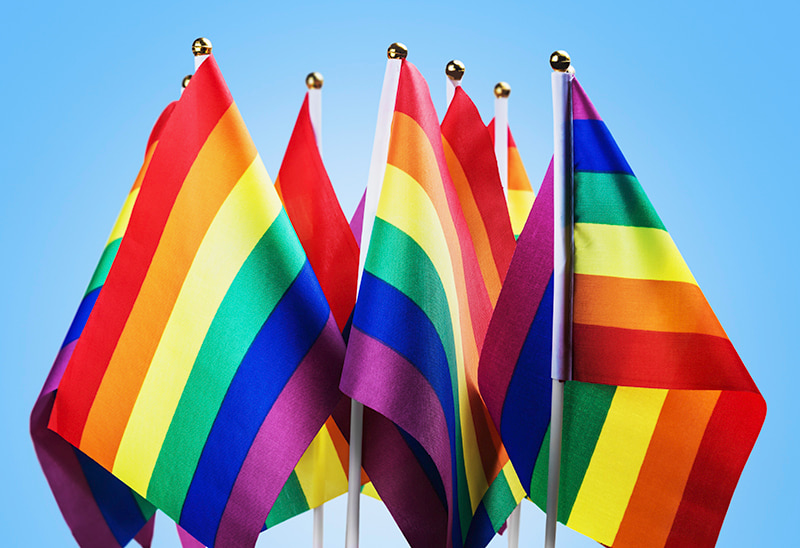
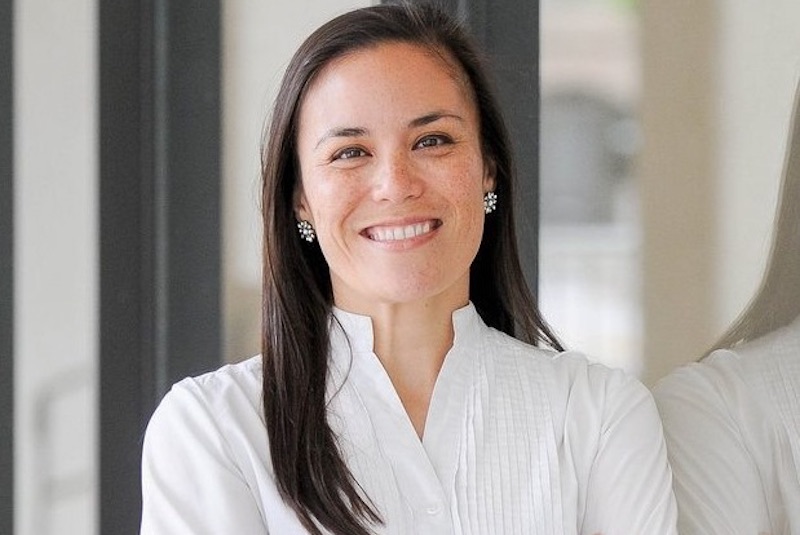
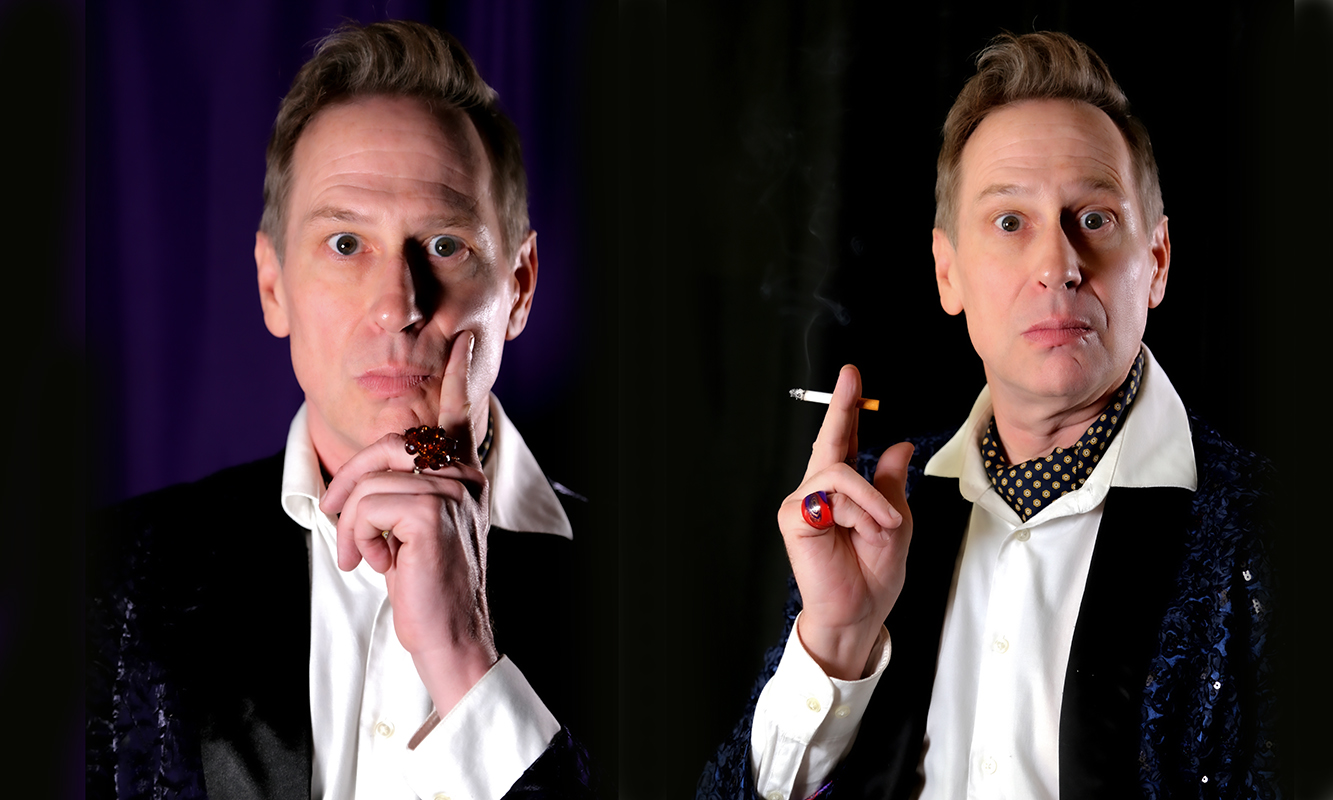













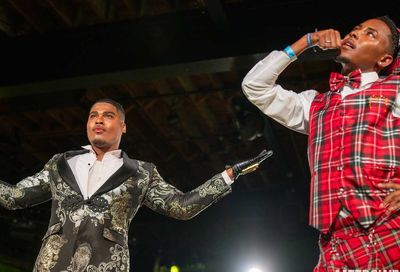
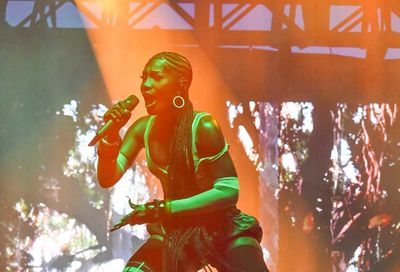
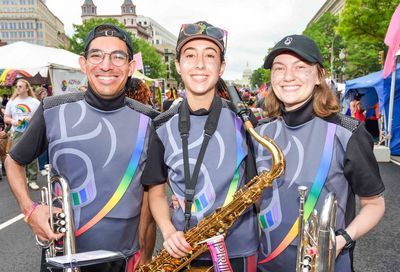
You must be logged in to post a comment.